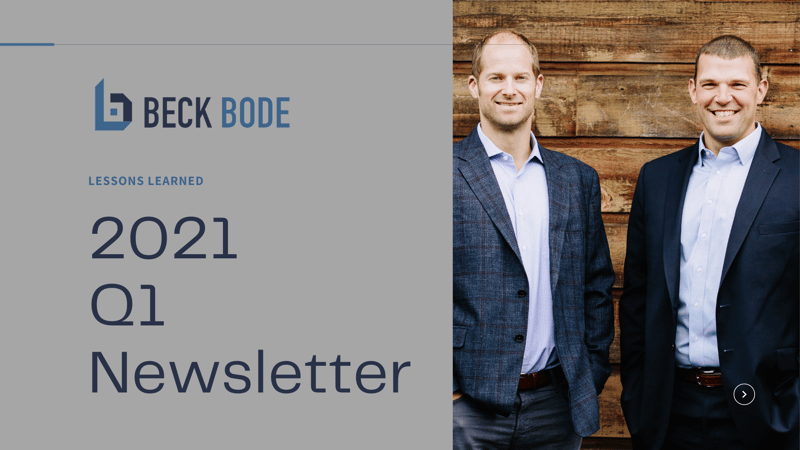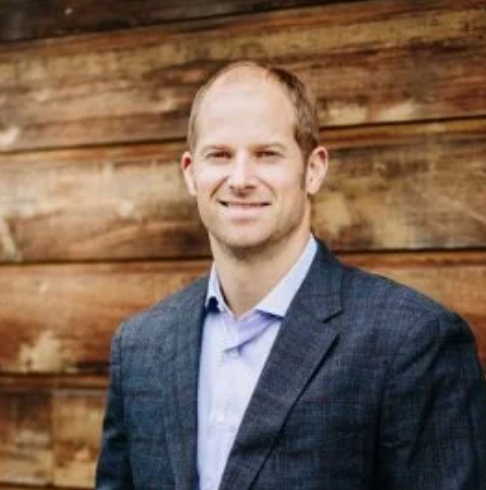 Dear Clients,
Dear Clients,
It’s rare that we see a year – both in the markets and in the broader economy – that provides such great teaching points to all investors. 2020 was such a year. If we had closed our eyes on December 31st, 2019, and then opened them at the very end of 2020, we would have seen that the market had appreciated almost 16%. When I say market in this instance, I mean the market as defined by the price appreciation of the S&P 500. Assuming that we reinvested dividends, that figure would be closer to 18%. No one can argue that it wasn’t an incredible performance year in the markets. As it pertains to the broad market S&P 500 index, if you had a million dollars invested in the at the end of 2019, your million dollars would have grown by $180,000.
But what was paramount to the market performance was how we actually got there…
It was the last week in February 2020, I was out in Los Angeles area at a three–day conference when the markets really started reacting to the Coronavirus hitting the United States. What at first glance appeared to many as an overreaction to ‘the common flu’ quickly turned into a global pandemic. Quickly and ferociously, the markets tumbled, nearly 40% in a matter of weeks. The Federal Reserve and Congress matched that ferocity with their own response, in monetary stimulus to the public, as well as in measures such as the payroll protection plans (PPP) and other support for small businesses. So much so that the economy, essentially, learned how to work around the global shutdown. As a result, by mid-August, the market had clawed back all of what it had lost from the lows in mid-March. Amazing.
To me, there are three major investment lessons to be learned from our experiences in 2020. The first is, even at the most dramatic points of the markets – whether we are feeling like the ground beneath us is literally giving way, or the other extreme, the euphoria we experience when things are taking off to the stars – nothing can be forecasted in the short term and the market certainly cannot be effectively timed. What’s astounding is how many people with “impressive” credentials have the audacity to predict what will happen, or to offer counsel on how to act. Consider a public comment made by notable “expert,” Mohamed El-Erian, former CEO of Harvard Management Company, the entity that manages Harvard’s endowment, who was also a long time Chief Investment Officer for PIMCO. Back in March, at the height of the market reaction, he went on record saying that you should not buy into the dip if you’re a long-term investor. And then a few weeks after that, he said that it “may” not be a good time to get back in. Imagine if you had actually followed his advice. What would have been the impact on your portfolio and your future?
Creating a long-term investment plan and sticking to it (as opposed to reacting to market events), once again demonstrated its immense value in 2020. As a firm, we offered a number of webinars to our clients when the downturn really started to take shape, and we continued it with consistency throughout the summer. The downturn of the markets in February and March were matched by an epic recovery by the mid-summer. Even as the pandemic was growing in terms of number of people infected, the human loss, and weak unemployment numbers, the markets themselves were recovering substantially.
The roller-coaster ride we experienced in 2020 is not inconsistent with historical norms. The market always recovers. Peter Lynch, the legendary Fidelity portfolio manager, is famously quoted as saying, “Far more money has been lost by investors preparing for corrections or trying to anticipate corrections, than has been lost in the corrections themselves.” 2020 exemplified to the letter this quote by Peter Lynch. Those investors who were able to stay put, execute on their plan instead of reacting and pulling their money out, benefited tremendously from the recovery of the markets. The economy and its leading companies, that both you and I own, continued to demonstrate their resilience as all major stock indices hit new highs throughout the year.
During this time, we saw a heroic response by our healthcare community and other essential personnel: the frontline workers, and those behind the scenes at the major research and development companies across the world. As we speak, a number of vaccines have been developed and approved in record time, with many more scheduled for rollout. Already, folks are being vaccinated and the expectation is the broader public will be vaccinated by the end of this year, if not sooner.
The second big lesson that stands out for me from 2020 has do with the presidential election. In my lifetime, I haven’t seen a more partisan election. Regardless of the candidate you supported, most people were generally convinced that if the other candidate were to be elected, it would precipitate the end of democracy and the economy as we know it. Anybody who made portfolio moves based on this thinking paid for it dearly. If there’s some wisdom to glean here it is to never ever get your politics mixed up with your investment policy. There’s always something lurking around the corner that we don’t know about today, something that is going to cause uncertainty. Let the uncertainty of politics stay in the political realm.
We are constantly hearing these phrases…“overvalued” or “undervalued,” “…the market’s too high,” or “…we’re due for a correction.” Now, is the market overvalued? Who knows? If you’re a long-term investor, as we all are, it shouldn’t matter. If it’s overvalued, then the coming year could be one where we see a correction. A correction is defined as a 10% or more drop from a previous market high. They are quite frequent in occurrence, and typically short lived. The question isn’t whether the market is overvalued or undervalued, the question is how do you and I, as long-term investors, act out of that possibility? My answer is, “We don’t react, because we can’t react. We won’t allow ourselves to react.“ Our strategy is driven by the same principles that held true a year ago, three years ago, five years ago. It will be driven by those same principles a year from now, three years from now and five years from now.
But hold on, “This time it’s different.” Right? This time is different, you’re thinking to yourself. It’s a pandemic. It’s an economic shutdown based on a virus we’ve never seen before. That’s certainly different. The potential for global trade being shut down because a rift between the US and China, the two largest global trading partners, that was different, circa 2018. What about 2008 and 2009? That was a ‘financial pandemic’ of global proportions. That was different. Some of the largest financial companies that had been around for decades went bankrupt; there were record foreclosures on homes. We experienced a financial meltdown that we haven’t seen since the likes of since the Great Depression. That’s different. 9/11, goes without saying. The accounting scandals at Enron, WorldCom, that’s different. An unprecedented internet boom and subsequent collapse, that’s certainly different. You see, nothing is different. These are all different flavors of the same thing. There is so much evidence in our past that tells us to do the exact opposite of what our emotions might tell us at the particular time. We won’t allow ourselves to react. We stay the course.
The third and most important lesson for any long–term investor has to do with faith in the future. For any investor to have success, it’s imperative that they have overwhelming optimism in the future. I was just reading an article in the Wall Street Journal that talked about how 3D printer robots are building homes. Self-driving cars are already on the roads in many cities. Children worldwide are going to school via video conferencing. As I drive my car on the highway, if I inadvertently start to drift, the technology in my car shifts me ever so slightly back into my current lane to ensure my safety. Incredible.
Who would have imagined any of this? What is overwhelming is the opportunity that lies ahead of us, not the history that is at our backs. In 2020, we learned a very important lesson about the creativity and the ingenuity of humans. In less than a year, we encountered a virus, created a vaccine against it and disseminated it to the public. Now that’s different.
We have been assured recently by the Federal Reserve that it is prepared to hold interest rates at current levels until the economy is functioning at somewhat close to full capacity. That may mean a number of years into the future. For us, as investors, it makes it more difficult than ever to even entertain the notion that anyone could meet their long–term goals using bonds or other fixed income investments. Individual equities, with their potential for long-term growth and especially the long-term growth of their dividends, provide a much more rational approach to support your and my multi-decade retirement. Our only response is to tune out the volatility. We execute on our investment policy. We do not react to the happenings of 2020 or to any future volatility, and that is how we will always act.
On behalf of our entire team, I want to thank all of our clients, many of whom we consider friends, for the immense amount of responsibility and trust that you afford us. We don’t take it lightly when someone entrusts to us their life’s work in terms of their savings and retirement.
Thank you again for being our clients, it’s a privilege to work with each and every one of you.
Ben
Benjamin Beck, CFP®
Managing Partner | Chief Investment Officer

 Benjamin Beck, CFP®
Benjamin Beck, CFP®